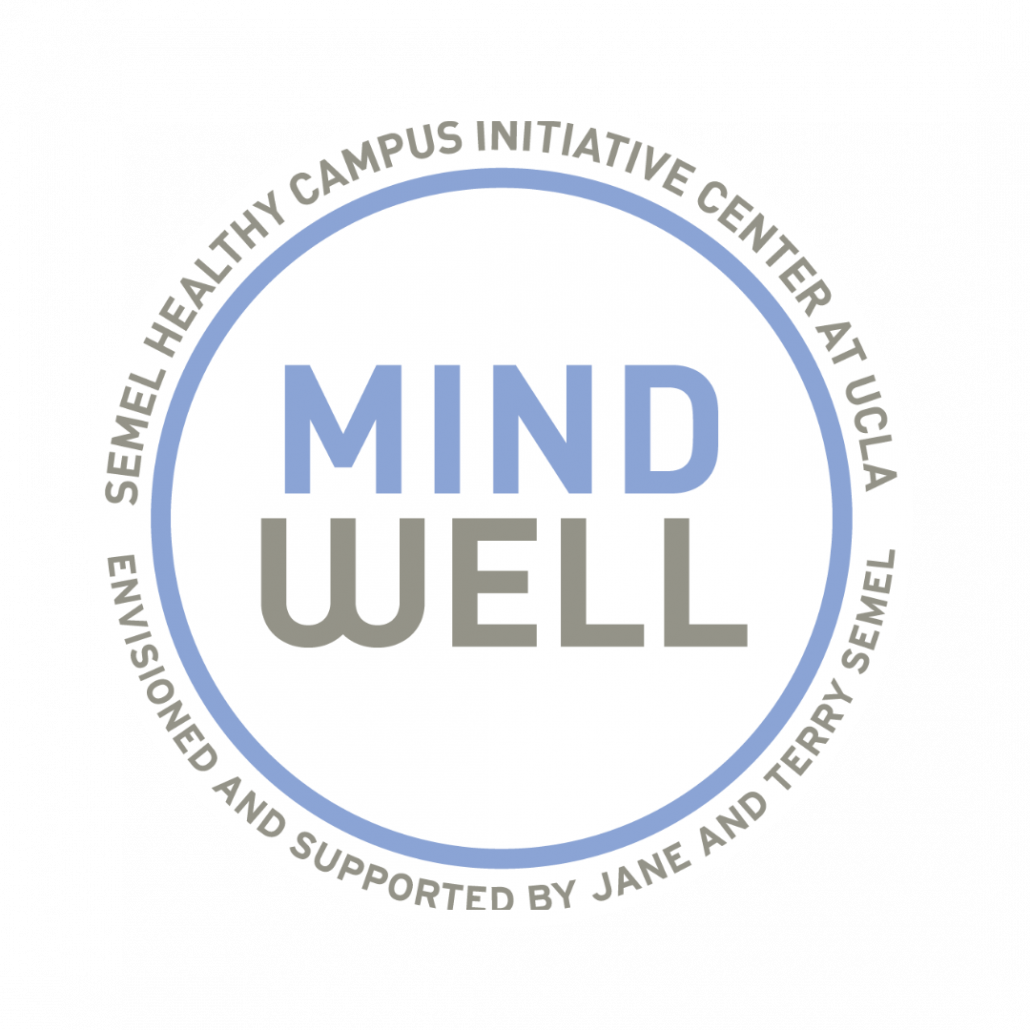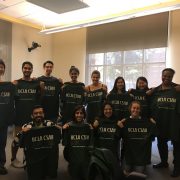Meet Anusha Sadda, CAPS Student Advisory Board Member
Many people know about Counseling and Psychological Services (CAPS) at UCLA, but most people don’t know there is also a board of students working alongside them to provide the best mental health resources possible. This group of students is called the CAPS Student Advisory Board (CSAB). The board is made up of students from different organizations and backgrounds, who have come together to voice the concerns of their respective communities and to inspire change. (Any student can apply to be a part of the board, so if you have an interest in mental health, think about making your voice heard by applying for next year’s board! Keep an eye out for an application announcement.)
About Anusha: Anusha is a graduating fourth year Psychobiology major and Public Health minor and a member of last year’s CSAB board. She’s a mental health advocate because mental health affects all of us even if we don’t all have a mental illness. After graduating, she hopes to work as an analyst at a healthcare company and eventually go to graduate school to become a psychiatrist or work in community health. She prefers TV shows over movies, and if she could watch only one for the rest of her life, it would either be Grey’s Anatomy, or This is Us. She isn’t a fan of either cats or dogs, and if she had to have a pet, she would prefer a goldfish. She adores Thin Mint Girl Scout cookies, and her life motto is “you can’t change the world, but you can change your world.”
Q: Tell me a little bit about the CAPS Student Advisory Board: how, why, and when was it created?
Anusha Sadda: Nicole Green, the director of CAPS, created CSAB in the 2016-2017 school year. She met with a lot of student groups and wanted a space for students to voice their opinions. She wanted to have a better idea of how to prioritize student needs, and she did that by hearing many different perspectives from some of UCLA’s students.
Q: Why did you want to join the CSAB last year?
AS: I was always involved with mental health groups on campus. I served as the campaign manager for All of Us, and I wanted to be involved with something that was more all encompassing. I wanted to learn more about CAPS, their staffing, finances, everything that played a role in making CAPS efficient and effective. It was a privilege making a difference for the students.
Q: What did the board focus on or accomplish last year?
AS: The biggest focus was the session limits at CAPS. There has been an increase in mental health service needs nationally, and we wanted to figure out what we would do with all of that demand.
Q: What specific things did you want the board to focus on? What concerns did you bring?
AS: I wanted to focus on educating students about what CAPS is, what resources there are, and using CAPS as an avenue to seek the right kind of treatment. Increasing awareness of mental health on campus was an important goal of mine last year. I wanted to create a collaborative effort, kind of like an umbrella, of all kinds of people focused on mental health that were coming from different campus groups, but that were coming together as partners to achieve a common goal.
Q: Why do you think it’s important for students to have this close interaction with CAPS?
AS: Not all students can advocate for themselves, and that leads to some people feeling like they aren’t represented. The CSAB board provides a way to bridge that gap, by having representatives speak for a community. The board is then able to hear their issues and address them. It’s also easier for students to talk to students, which helps create honesty and strengthens students’ relationship with CAPS.
Q: What do you think the impacts are of having a board run by students geared towards the benefit of students?
AS: I think it shows people that CAPS is really trying to be the best it can be and tend to student needs. Their efforts are going above and beyond. Dr. Green is a very busy woman, and she takes the time to be present at all of the CSAB meetings because she really cares to hear from students. We want people to say what they want to say to the board and have their issue addressed.
Q: What do you hope future members of the board accomplish with the partnership?
AS: I don’t have a long term goal for the board, because we never know what is going to be changing in the future. All I care about is that students, staff, and faculty feel like they have the best mental health resources possible— for the UCLA community to be happy mentally, physically, and emotionally.
Aubrey Freitas is an undergraduate student at UCLA double majoring in English Literature and Psychology with a minor in Italian. She is a blogger for the UCLA Healthy Campus Initiative in the Mind Well section, which focuses on the importance of mindfulness and mental health. Aubrey is the founder of the organization Warm Hearts to Warm Hands, which teaches the skill of knitting to people of the community in return for their donation of an article of clothing they create with the skill, to be given to local homeless shelters.

